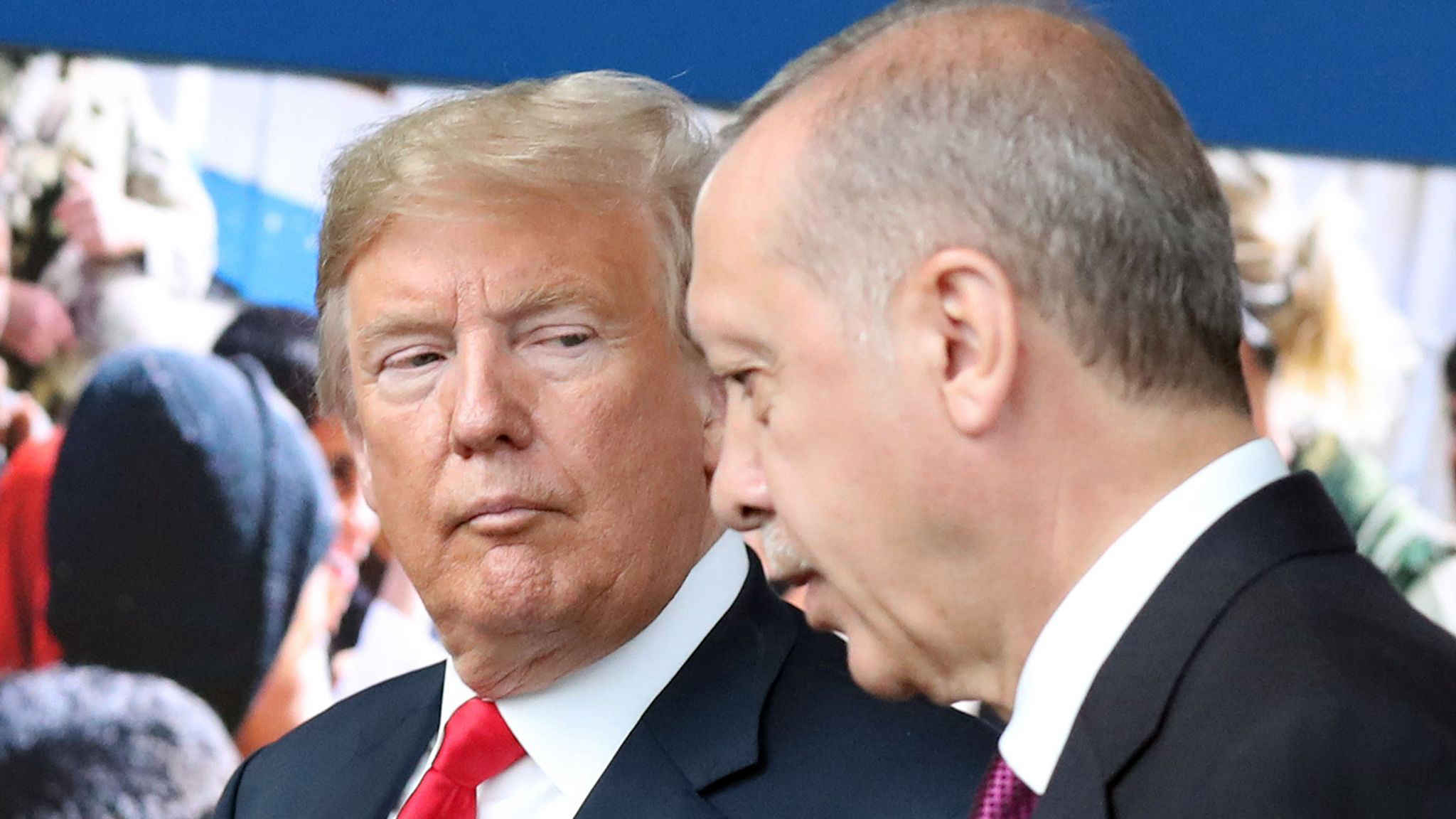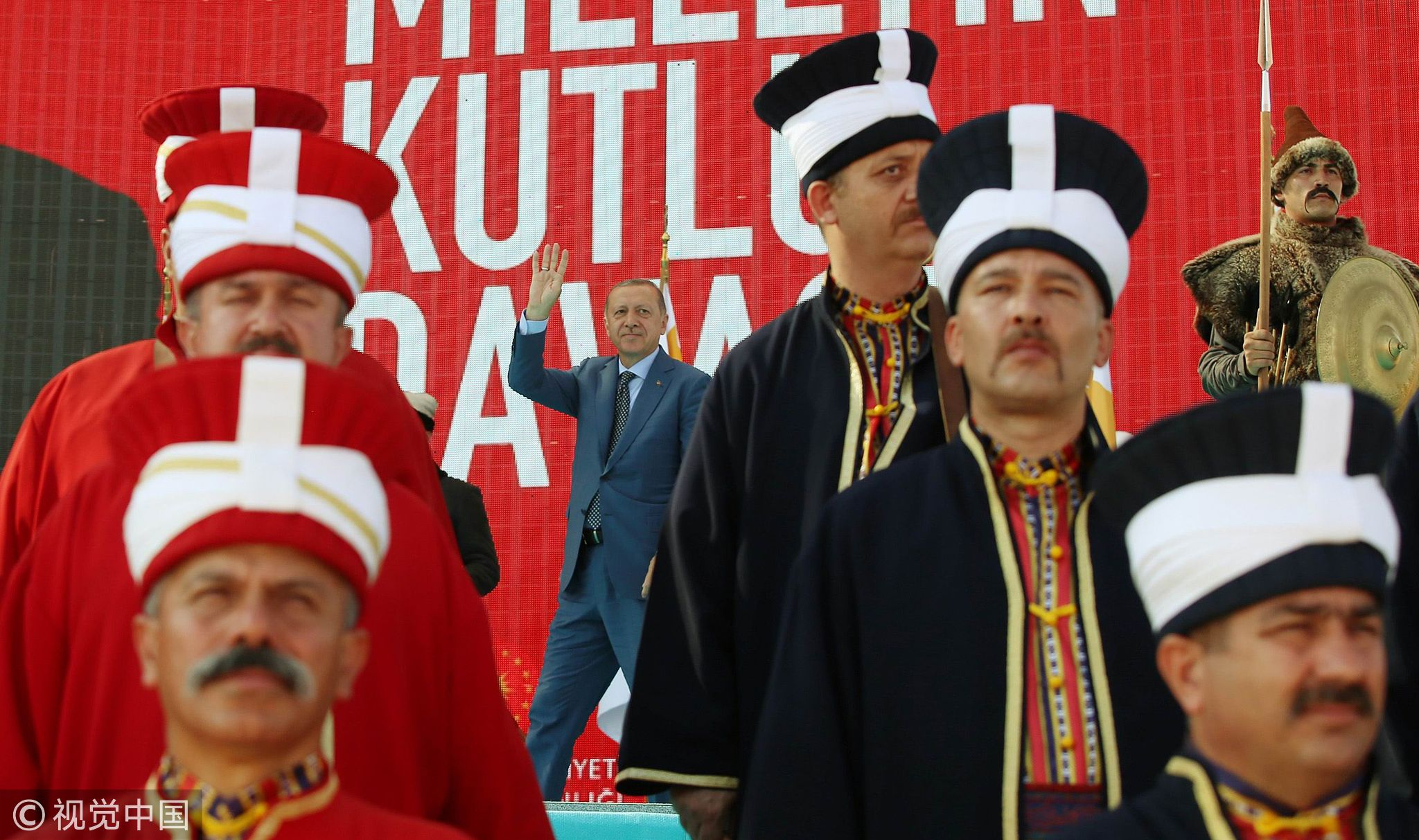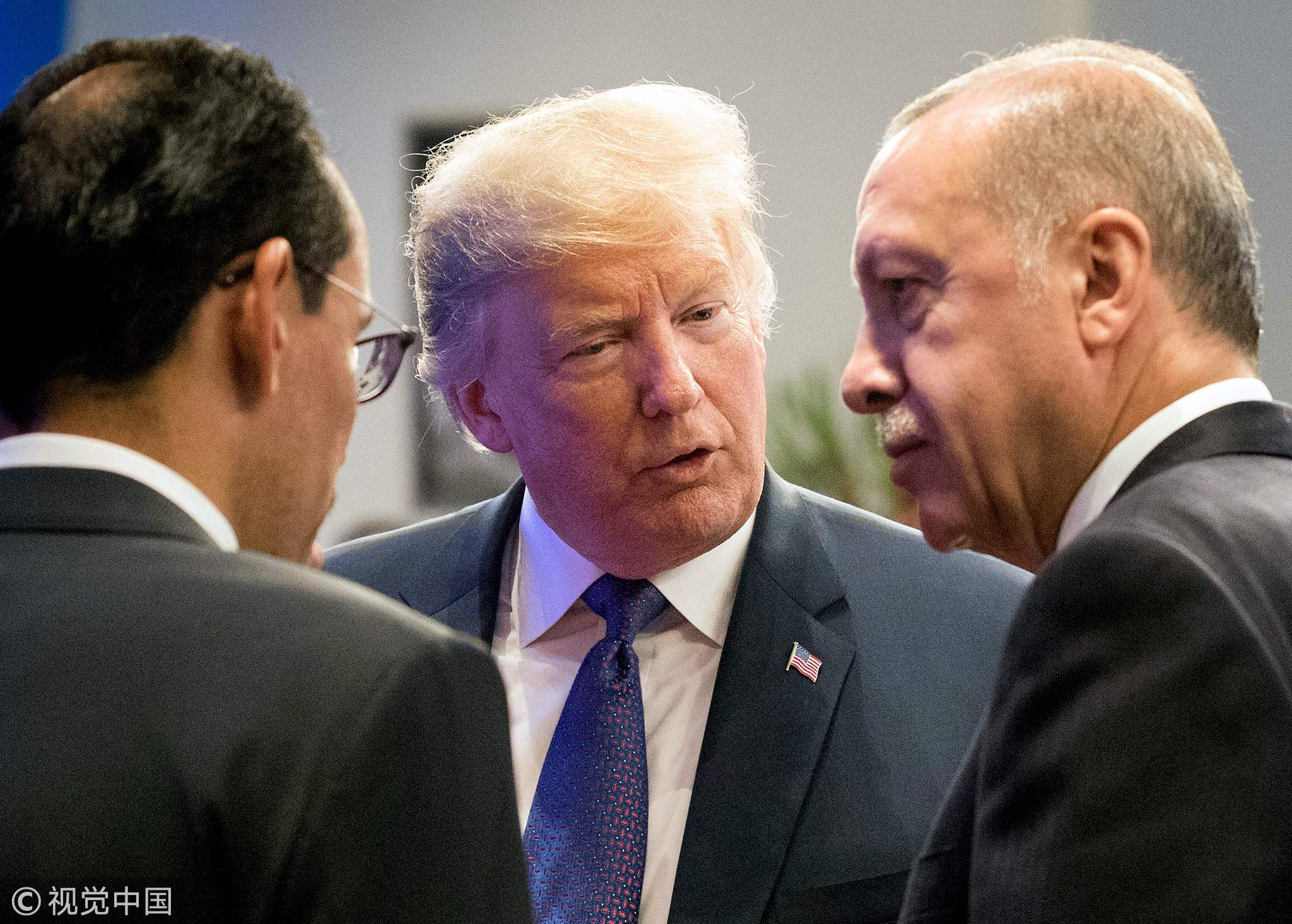
Opinions
17:45, 04-Sep-2018
Opinion: The unprecedented Turkey-US crisis
Updated
17:37, 07-Sep-2018
Wang Jin

Editor's note: Wang Jin is a research fellow at the Charhar Institute and Northwest University. The article reflects the author's opinion, and not necessarily the view of CGTN.
The diplomatic crisis between Ankara and Washington, which is fundamentally different from any other crisis in history, continues. The unfavorable relationship is multi-dimensional and it is not likely to resolve in the near future.
Turkey-US relations could be traced back to the end of World War II when Ankara felt an increasing threat from its northern neighbor the Soviet Union. Turkey became a member of NATO and chose to closely stand with the US in the Cold War. However, there were crises between Ankara and Washington during this period.

Turkish President Recep Tayyip Erdogan gestures as he addresses the audience during an event held to mark the 947th anniversary of The Battle of Malazgirt (1071 Manzikert War) in the Ahlat district of Bitlis, Turkey, August 26, 2018. /VCG Photo.
Turkish President Recep Tayyip Erdogan gestures as he addresses the audience during an event held to mark the 947th anniversary of The Battle of Malazgirt (1071 Manzikert War) in the Ahlat district of Bitlis, Turkey, August 26, 2018. /VCG Photo.
After the Cuban Missile Crisis in 1962, the US decided to withdraw its missiles from Turkey in exchange for Moscow's withdrawal of its missiles from Cuba. Washington's decision shocked many in Turkey, causing them to question if the US was a reliable partner for Ankara.
In 1964 when Washington acknowledged Ankara's planned military intervention against Cyprus, then US President Lyndon Johnson sent a letter to then Turkish Prime Minister Ismet Inonu to caution Turkey against military moves.
President Johnson expressed Washington's desire to expel Turkey from NATO if Ankara decided to intervene in Cyprus.
The letter sent by President Johnson, or the "Johnson Letter," at the time of the Cold War, not only prompted Turkish Prime Minister Inonu to convene his cabinet in an emergency session, but also disappointed many Turkish people and sparked a large wave of anti-American sentiment in Turkey. After Turkey invaded Cyprus in 1974, a congressional arms embargo against Ankara further threatened Turkey's relationship with the US.

A car passes by a security booth with a bullet hole in the window, at the entrance of the US Embassy, in Ankara, on August 20, 2018. /VCG Photo.
A car passes by a security booth with a bullet hole in the window, at the entrance of the US Embassy, in Ankara, on August 20, 2018. /VCG Photo.
Although it is not the first time that history has witnessed strained relations between Ankara and Washington, the current Turkey-US crisis is still unprecedented and is difficult to resolve in a short term.
In the 1960s and 1970s, the most imminent enemy for Turkey was the Soviet Union. While anti-US sentiment in Turkish society was once weak, today, according to the Pew Research Center, nearly 80 percent of Turkish respondents hold an unfavorable opinion of the US, and anti-US sentiment in Turkey is salient and stronger than at any time in history.
The current Turkey-US crisis is a miniature representation of distrust between Ankara and Washington, while the crises in the 1960s and 1970s were just single-case issues. Ever since the failed military coup attempt against Erdogan and his Justice and Development Party (AKP) in July 2016, the hostility and distrust between Turkey and the US has emerged and escalated.

US President Donald Trump (2nd R) speaks with Turkish President Recep Tayyip Erdogan (R) during a working dinner in Brussels, during the North Atlantic Treaty Organization summit, July 10, 2018. /VCG Photo.
US President Donald Trump (2nd R) speaks with Turkish President Recep Tayyip Erdogan (R) during a working dinner in Brussels, during the North Atlantic Treaty Organization summit, July 10, 2018. /VCG Photo.
Ankara believed that Washington was behind the coup attempt and refuged the leader of the coup attempt, Fethullah Gulen, while Washington insisted its innocence. Ankara believes Gulen still operates and manipulates a "state within Turkey," and maintains that Andrew Brunson, the US pastor currently detained in Turkey, is an important member of this "state."
In addition, Ankara and Washington continue their divisions over other sensitive regional issues. In the Israel-Palestine peace process, Erdogan and his government perceive themselves as the only "guardian" for Palestinians, while Donald Trump's move of the US Embassy in Israel from Tel Aviv to Jerusalem was interpreted by Ankara as "a humiliation against all Muslim states."
On the Syria issue, Turkey and the US contend over the "terrorist nature" of Kurdish groups in Northern Syria. Trump's decision to withdraw from Iran Nuclear Deal, or the JCPOA, and re-impose sanctions against Tehran faces resistance from Ankara, while Erdogan called Iran a "neighbor and a strategic partner."
The row between Ankara and Washington will not lead to war between NATO's two biggest armies, but it will push Turkey further into the non-Western orbit. The current crisis reflects the deep-rooted and multi-dimensional divisions between Ankara and Washington and it is impossible to melt down the distrust in a short term.

SITEMAP
Copyright © 2018 CGTN. Beijing ICP prepared NO.16065310-3
Copyright © 2018 CGTN. Beijing ICP prepared NO.16065310-3